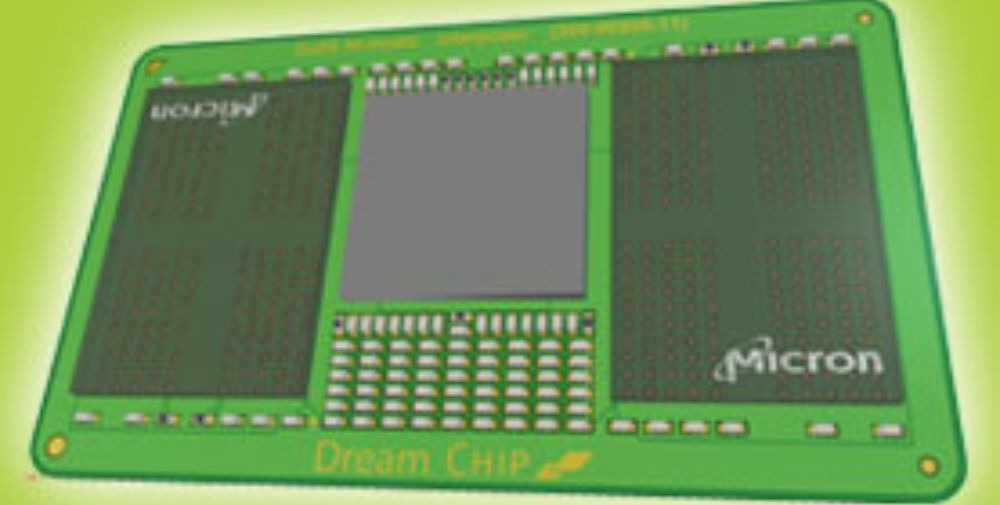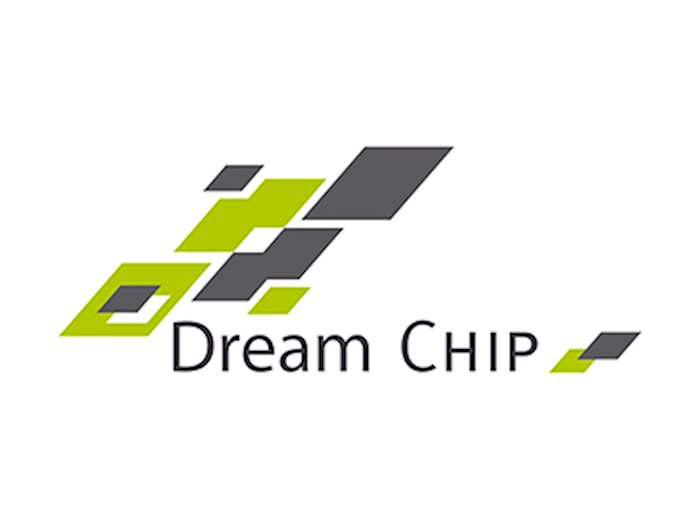Aug. 18, 2023. Dream Chip Technologies on Aug. 18 announced the launch of an application-specific system-on-chip (SoC) with a novel artificial intelligence (AI) accelerator.
Categories
Aug. 18, 2023. Dream Chip Technologies on Aug. 18 announced the launch of an application-specific system-on-chip (SoC) with a novel artificial intelligence (AI) accelerator.

Categories
Tags
Contact info
Silicon Saxony
Marketing, Kommunikation und Öffentlichkeitsarbeit
Manfred-von-Ardenne-Ring 20 F
Fax: +49 351 8925 889
Contact person:

The main blocks on the SoC are two AI accelerators with an aggregated performance of 10 TOPS, two Dream Chip Realtime Pixel Processor (RPP) high-performance automotive image signal processors (ISPs), an ARM Cortex-R52 based functional security processor (Alcatraz), a dual-core ARM Cortex-A65 processor cluster and an Arteris FlexNoC Network-on-Chip.
The two AI accelerators are a Neural Processing Unit (NPU) from TU Dresden and an NPU from Cadence (NNA110). The TU Dresden NPU is a circuit consisting of a RISC processor with local program memory, 768 Processing Elements (PE) with tightly coupled memory, and a local DMA controller. The NNA110 is a deep neural network accelerator optimized for artificial intelligence (AI) applications in image processing, audio, radar/lidar, and fusion sensing, providing industry-leading performance and power efficiency by exploiting sparsity of weights and activations. Together, the two AI cores achieve a total of 10 TOPS with INT8 precision.
Dream Chip’s two low-latency 5k-line image signal processors support CMOS sensors up to 19.6 MPixels and perform image processing tasks without impacting the performance of the Cortex-A65AE or Cortex-R52. The ISP has been developed by Dream Chip according to the ISO26262:2018 standard and is certified by TÜV Süd up to ASIL-B/-D. It uses a hard-wired 24-bit image pipeline with low power consumption. The ISP does not require an additional frame buffer, resulting in a very low latency of 200µs.
Alcatraz is Dream Chip’s patented Safety Island subsystem for automotive applications based on the ARM Cortex-R52 dual-core lock-step processor. The Safety Island subsystem is used in automotive SoCs to monitor application processors and detect and handle safety violations.
The Application Processor Unit (APU) is based on a dual-core ARM Cortex-A65AE processor subsystem suitable for running an application operating system (OS), such as Linux or QNX.
Dream Chip performed the complete design cycle from architecture to tape-out in this project, including integration of all internal and external IP (Intellectual Property Blocks and subsystems) and future bring-up/post-silicon validation and reference board design.
The SoC has 1.8 billion transistors and will be manufactured using GlobalFoundries’ 22FDX technology in Dresden, Germany, to support the local European semiconductor supply chain for automotive applications. First samples will be available in Q4/2023.
“The development of this advanced automotive SoC, which combines AI performance with functional safety and state-of-the-art image signal processing, is an important step in providing OEMs and Tier-1s in Germany with semiconductor solutions on which they can develop advanced automotive applications,” said Dr. Jens Benndorf, CEO and co-founder of Dream Chip Technologies. “With this SoC, Dream Chip demonstrates the ability to perform chip design from architecture to tape-out, with Dream Chip being the right interface to the foundries in the semiconductor supply chain.”
The SoC is being developed as part of the government-funded ZuSE-KI-Mobil (ZuKIMo) research project. The goal of the ZuKIMo project is to develop a new SoC and ecosystem to enable efficient AI applications with specific requirements. Advanced hardware/software co-design is used to optimize the efficiency of machine learning workloads. In addition to power consumption, special attention has been paid to functional safety aspects. The chip also builds on state-of-the-art IP from partners ARM, Arteris, Cadence and Synopsys. The project and the SoC are described in the paper by F. Kempf et al, “The ZuSE-KI-Mobile AI Accelerator SoC: Overview and a Functional Safety Perspective,” 2023 Design, Automation & Test in Europe Conference & Exhibition (DATE), Antwerp, Belgium, 2023, pp. 1-6, doi: 10.23919/DATE56975.2023.10137257.
About Dream Chip Technologies
Dream Chip Technologies GmbH (DCT) is a German fabless semiconductor technology company specializing in the development of large ASICs, FPGAs, embedded software and systems, with a strong application focus on automotive vision systems. Companies from various industries worldwide rely on DCT’s expertise and outstanding technical capabilities. DCT’s mission is to bridge the gap between supply and demand by supporting its customers with advanced vision technologies, enabling them to bring new products to market without neglecting their core business. This strategy ensures business stability and steady growth through product innovation. Our strong development team brings more than 25 years of experience in SoC and embedded SW design. The company’s main strengths are chip design, image signal processing, device networking and autonomous systems. Today, the company employs more than 100 engineers in Germany and the Netherlands.
– – – –
Photo: Dream Chips